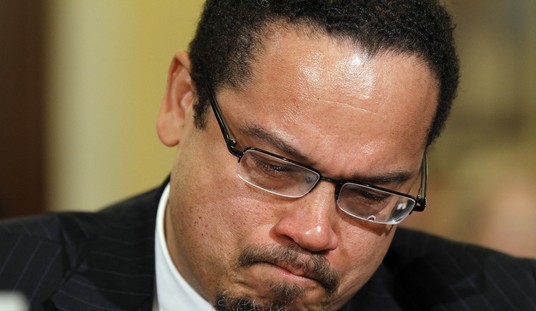Yet another side effect of the Ferguson unrest was the inevitable calls for how we really need to have a national conversation on race. (You can read some of my previous thoughts on the value of what the media considers a national conversation here.) As I watch the attempts at such debates taking place not only on the small screen, but on blogs and comment sections around the web, I detect a growing sense of frustration on both sides. There are sizable groups of progressives who seem sincerely interested in convincing everyone that pretty much all of these problems – as well as much of what’s wrong with the rest of the nation – boil down to latent racism and endemic white supremacy. This is frustrating to some people who feel that the rules should apply evenly to everyone and that life in a free society comes with an inherent expectation of personal responsibility. For their part, the progressives appear to be frustrated when some of their debate opponents opine that robbing stores and attempting to beat up police officers can lead to bad results even if your skin is bright pink with chartreuse spots.
But the conversation really screams to a halt when the more conservative crowd runs into somebody like CNN author and religion blogger John Blake. Rather than yelling about it on one side or the other, or even trying to grasp what the other party might be trying to say, Blake jumps on the shiny new bandwagon of forgiving everyone who doesn’t think they are a racist because, well… you probably just don’t realize you are and you don’t know any better.
[I]t doesn’t wear a hood, but it causes unsuspecting people to see the world through a racially biased lens.
It’s what one Duke University sociologist calls “racism without racists.” Eduardo Bonilla-Silva, who’s written a book by that title, says it’s a new way of maintaining white domination in places like Ferguson.
“The main problem nowadays is not the folks with the hoods, but the folks dressed in suits,” says Bonilla-Silva.
“The more we assume that the problem of racism is limited to the Klan, the birthers, the tea party or to the Republican Party, the less we understand that racial domination is a collective process and we are all in this game.”
Let’s see… in this caring, open minded, helpful analysis where he’s just trying to have an honest conversation, how many people could a quote from Bonillap-Silva offend in just the opening salvo?
People who wear suits. Check.
Birthers. (Read as anyone who opposes Barack Obama for any reason here.) Check.
The Tea Party. Check.
The rest of the Republican Party. Check.
Hoo boy… that’s a great starting point. But to get the full flavor of how far off the beam this train of logic goes, you need to read the lengthy descriptions of each of the three phrases that often crop up when whites and racial minorities talk about race, and why using them proves you are a racist, albeit perhaps an unintentional one.
‘I don’t see color’
‘But I have black friends’
‘Who you calling a racist?’
The full definition behind each of those three statements – and their deeper meaning for the racisty racists who say or imply them – is probably more than enough to leave most of you shaking your heads and bailing out of any conversation with Mr. Blake. But the drilling down which follows the third is truly enough to make your head spin. Here’s just one sample.
The courts may ignore colorblind racism, but ordinary people ought to be aware of it when they talk about racism, others say. Ross, author of “Everyday Bias,” says being biased doesn’t make people bad, just human.
He says people are hardwired to be biased because it helped keep our ancestors alive. They survived, in part, by having to make quick assumptions about strangers who might prove threatening.
“We need to reduce the level of guilt but increase the level of responsibility we take for it,” he says. “I didn’t choose to internalize these messages, but it’s inside of me and I have to be careful.”
Part of being careful is expanding our definition of racism, says Bonilla-Silva, author of “Racism Without Racists.”
Racism has evolved, but our language for describing it hasn’t, he says.
You see? Your inherent, intractable bias doesn’t make you a bad person. You’re just too stupid to realize what it is that you may or may not be doing, but would probably do if given a chance recognizable by your incredibly racist subconscious. They don’t want you to feel guilty about this… they just want you to stop doing it. Even if you haven’t the vaguest idea of what it might be, and they can’t even tell you themselves, you’re clearly still doing it. So stop, okay?
And if you can’t manage to stop, don’t worry. We’re going to have a national conversation about it. Every. Single. Day.







Join the conversation as a VIP Member